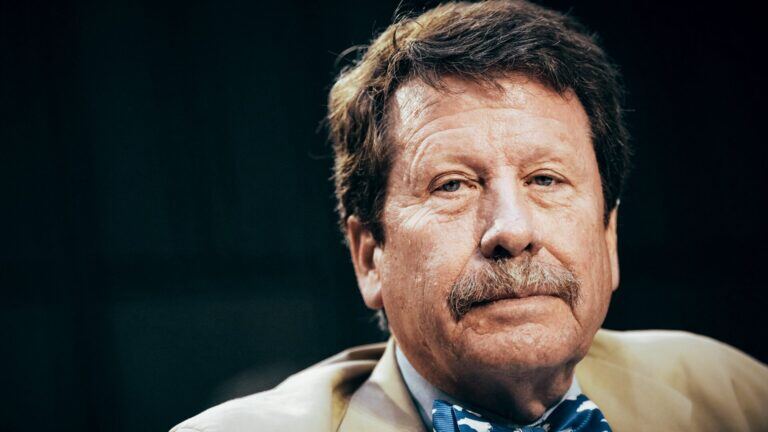politics
FDA commissioner Califf on Trump, food, and Humpty Dumpty

Photo illustration/STAT, Drew Angerer/Getty Images
What does departing FDA commissioner Robert Califf's think about the future of the agency? "I have a lot of reason to be concerned," Califf told STAT's Matt Herper.
With less than two weeks until President-elect Donald Trump enters the White House, we're entering what could be a volatile period for the FDA. Before the election, Robert F. Kennedy Jr., Trump's pick for HHS secretary, warned the agency's employees on social media to preserve "their records."
Califf said he actually agreed with this directive. "If Humpty, Dumpty has a great fall, someone's going to have to put Humpty, Dumpty back together again."
In a wide-ranging interview, Califf also defended the FDA's record under his leadership, praised the agency's progress in how it regulates food, and worried about the impact of the coming administration. Read more from Matt.
biotech
East Asian Americans are shut out of top biotech positions
Despite working in high numbers in the biotech biopharmaceutical industry, East Asian Americans are absent from the top leadership positions in the field's largest companies, according to a report released today. Among publicly traded therapeutics companies with market capitalizations of over $500 million, East Asians hold 7% of C-suite roles among all companies. But among the industry's largest companies, they hold just 2.5% of C-suite roles and 1.2% of board seats.
The report echoes some great recent reporting about Asian Americans in science from STAT's Usha Lee McFarling — including how people in this demographic receive major research awards at lower rates and are less likely to hold leadership positions in academic medicine. (Thanks to Usha, also, for sharing this report's findings with me.)
The findings are good to keep in mind as we careen toward the craziest week of the year for the biotech industry: the J.P. Morgan Health Care Conference. If you know, you know. And if you don't, STAT's Adam Feuerstein and Allison DeAngelis have the story on the stakes of this year's conference with a major patent cliff coming between now and 2033.
first opinion
Most cancers actually don't have a screening test
While there's been some debate over how much preventative screening might be too much, it's clear that tests like Pap smears, mammograms, and colonoscopies have prevented countless cancer deaths. That's in part because the Affordable Care Act mandates that insurers offer these lifesaving tests for free, as long as the tests achieve an "A or B rating" from the U.S. Preventive Services Task Force.
In reality, only tests for "the Big Four" of cervical, breast, colorectal, and lung cancer are covered, because no other test has shown the kind of performance that would merit those high ratings. In a new First Opinion essay, biotech CEO Dawn Mattoon argues that the absence of a stronger insurance mandate has made companies reluctant to invest the money and work needed to create innovative, lifesaving tests. Read more from Mattoon on what needs to change.


No comments